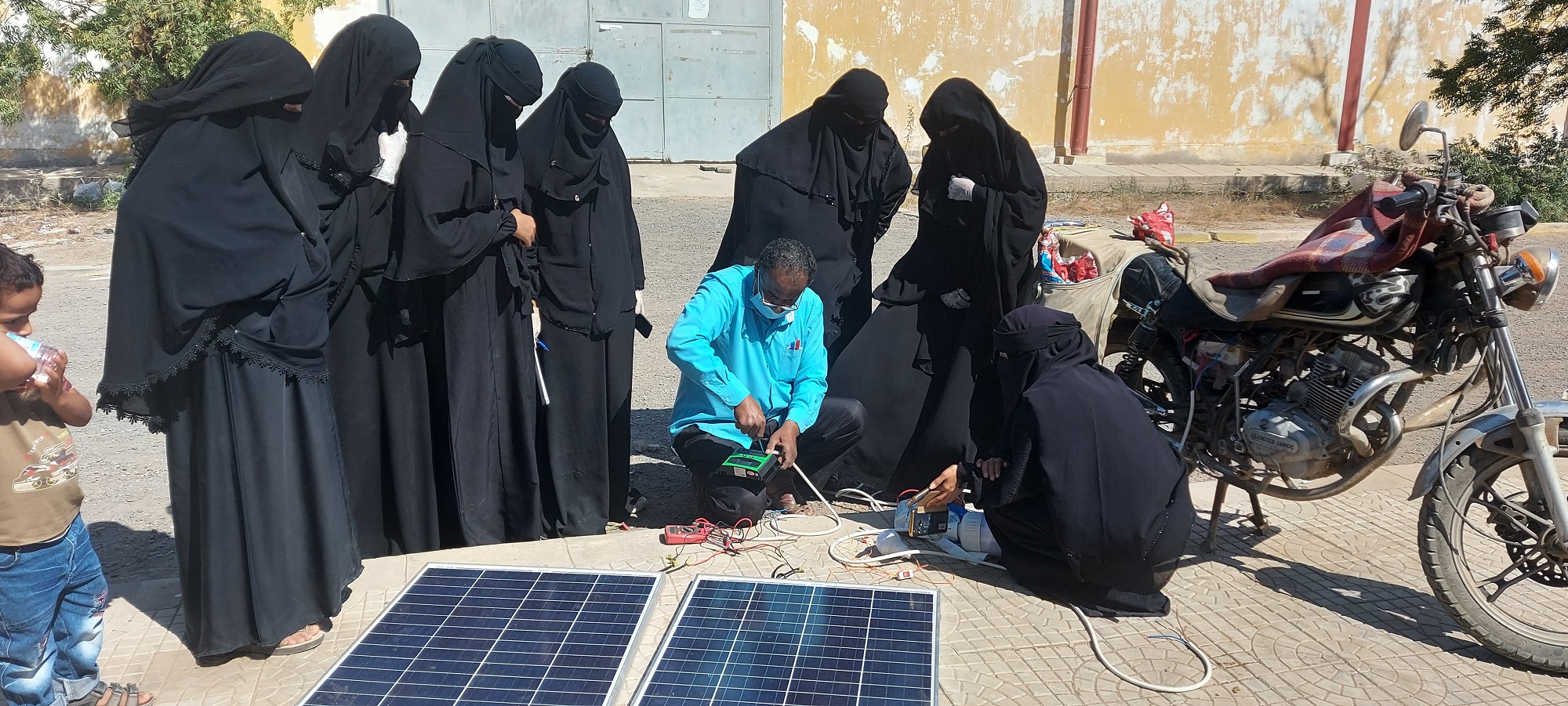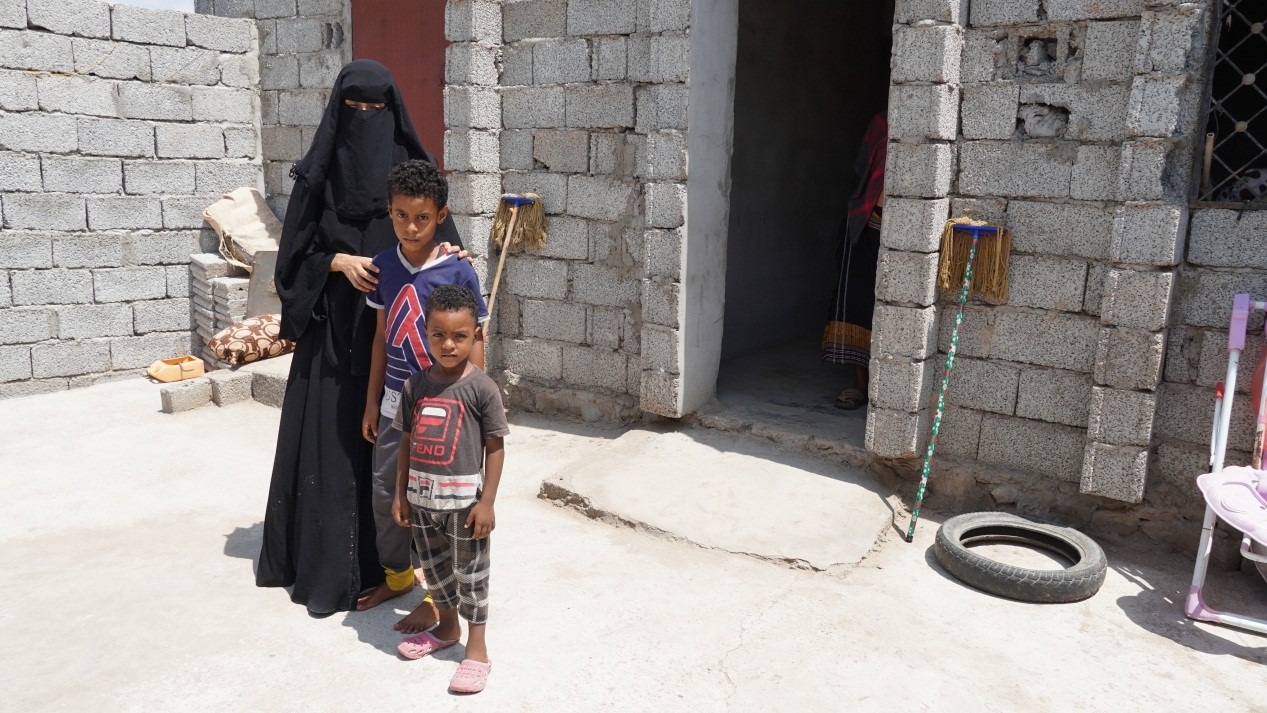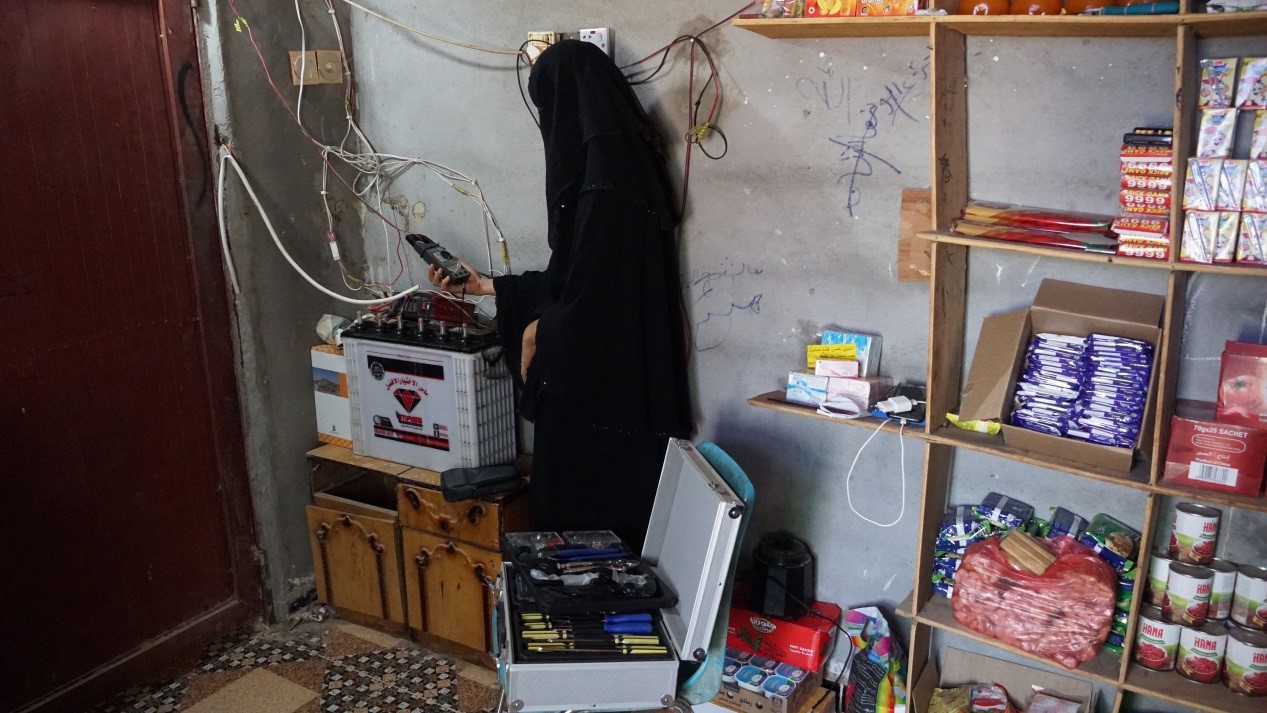E’tiraf Abdo Turki, 35 years old, is a mother of two children from Lahj, a governorate in southern Yemen. When the armed conflict erupted in the country in 2015, E’tiraf and her family fled from Lahj to Aden city. And when fighting settled in their hometown, the family returned to start over again in the devastated village.
“After we returned to our hometown, like many other returnees, we found it difficult to access basic services, especially after we lost our livelihoods,” says E’tiraf. “Accessing electricity is very difficult here with the frequent, long cut-offs of the public electricity. We had to rely on kerosene lamps, which made simple everyday tasks such as cooking and reading more difficult.”


